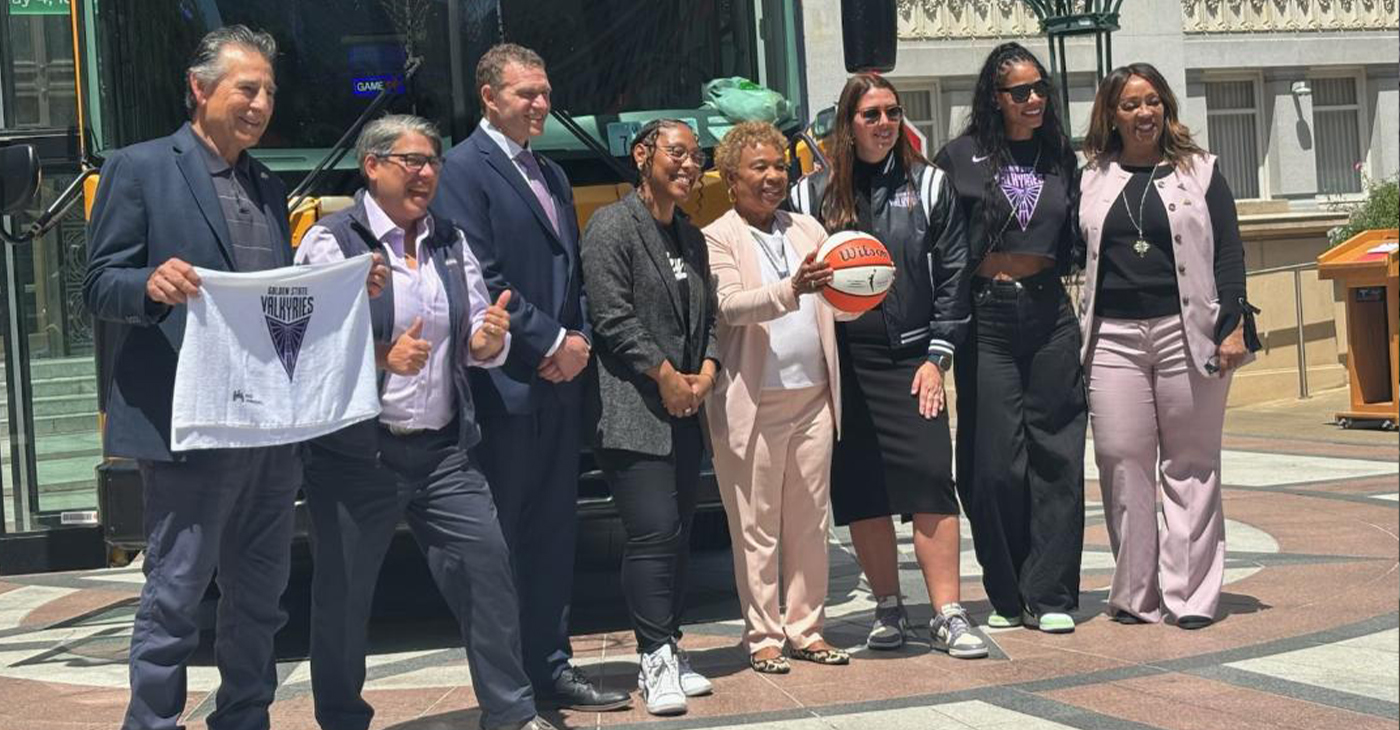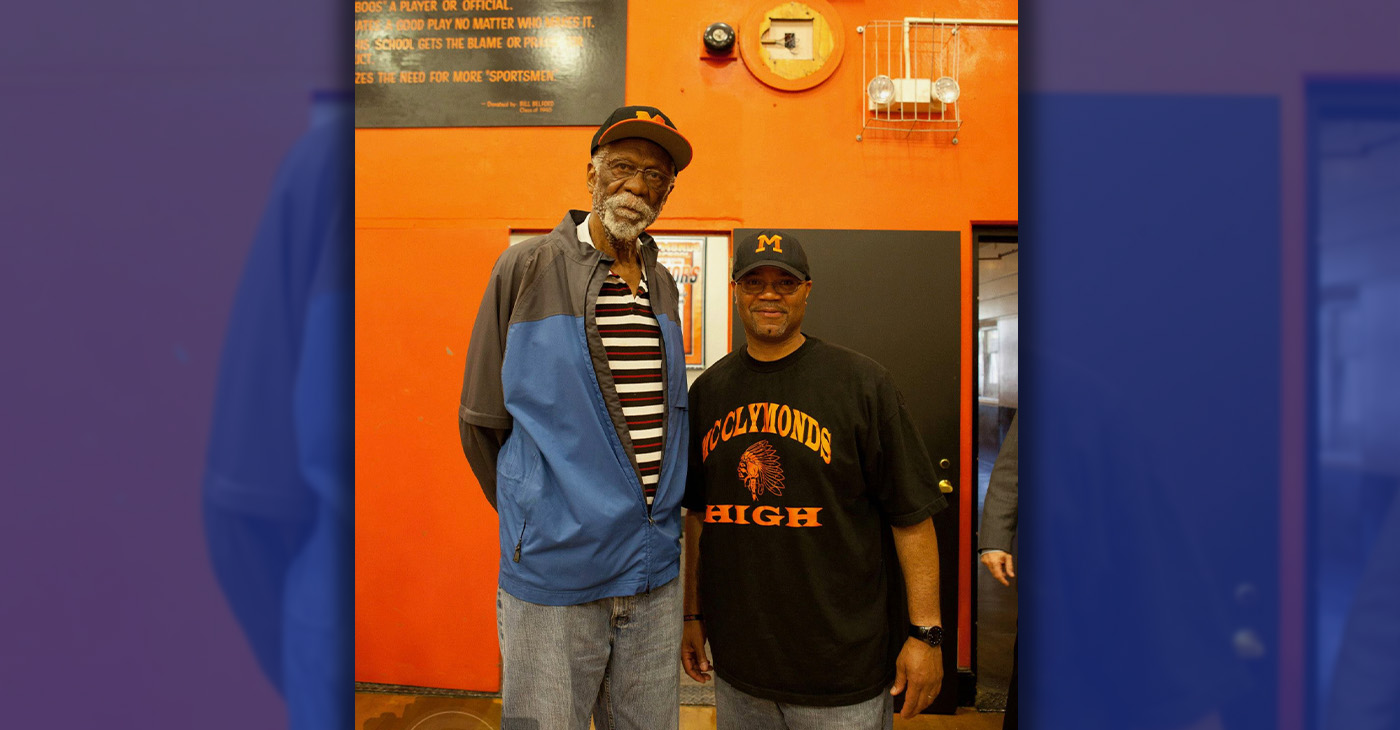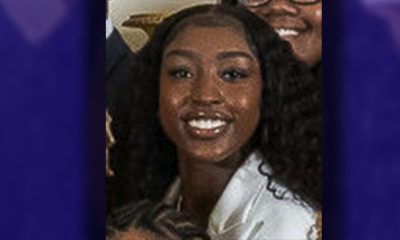Sports
3-Peat: UConn Beats Notre Dame 63-53 for 3rd Straight Title

Connecticut players pose with the national championship trophy after the NCAA women’s Final Four tournament college basketball championship game against Notre Dame, Tuesday, April 7, 2015, in Tampa, Fla. Connecticut won 63-53. (AP Photo/Chris O’Meara)
DOUG FEINBERG, AP Basketball Writer
TAMPA, Fla. (AP) — Geno Auriemma and his UConn Huskies are a perfect 10.
The Hall of Fame coach joined some elite company in UCLA’s John Wooden after tying the Wizard of Westwood with his 10th NCAA Tournament title.
“Obviously it’s a very significant number because that’s the number that’s been out there and people want to talk about it. I’ll be the first to say I’m not John Wooden and I got a bunch of friends who’d tell you I’m right, I’m not,” Auriemma said. “As I said the other day I just think what we’ve done here in the last 20 years is pretty remarkable in its own right.
“I’ll let the people who write the history decide where I fit in.”
Kaleena Mosqueda-Lewis and Moriah Jefferson each scored 15 points Tuesday night to lead the Huskies to a 63-53 victory over Notre Dame. It was UConn’s third straight title; Auriemma and the Huskies have won all 10 of their trips to the national championship game. As has become a tradition, his team carried Auriemma off the court after dumping confetti on his head.
Breanna Stewart added 15 rebounds and eight points for UConn (38-1). The two-time AP Player of the Year has saved her best games for when the lights shined their brightest.
She earned most outstanding player of the Final Four honors for the third time, making her the first woman ever to achieve that. Kareem Abdul-Jabbar was the only men’s player to do it when he played for Wooden’s Bruins.
“There just hasn’t been a player like Stewie in the women’s game in a long, long time,” Auriemma said. “She might be two inches taller than Cheryl Miller and Cheryl Miller was one of best players I saw. … Stewie’s the kind of player that women’s basketball probably hasn’t seen.”
She stated when she came to UConn that her goal was to win four championships. She’s now one title away from being the first to win four straight. Stewart has been a huge reason why the Huskies have won their three consecutive titles. She broke down on the podium with tears streaming down her face.
“I think it’s really surreal and I haven’t had a chance to even think about that,” said Stewart wearing the championship net around her neck. “I’ve won three national championships, but said I wanted to win four, you can’t win four without winning three first.”
Auriemma took Stewart out with about 30 seconds to play and gave her a big hug. The 6-foot-4 star is the latest in a long line of outstanding UConn players that Auriemma has coached, including Rebecca Lobo, Diana Taurasi, Sue Bird and Maya Moore.
Those players have helped Auriemma win his 10 championships over 20 years. Wooden won his 10 during a 12-year span.
“I just know that in our sport, from 1995 to today, what we’ve done against our peers is as good if not better than anybody else has done in their sport against their peers,” Auriemma said. “I don’t care whether it’s harder in that sport.”
Auriemma won his title one night after fellow USA Basketball Olympic coach Mike Krzyzewski won his fifth men’s championship at Duke.
“Our Dad was very proud of Geno and Mike and how throughout their years as collegiate head basketball coaches they have diligently led their student-athletes to be successful on the court, in the classroom and in their lives,” Wooden’s children Nan and Jim Wooden said in a statement.
Notre Dame coach Muffet McGraw had her team back in the championship game for the fourth time in five seasons. The Irish have come up short each time, including the last two against UConn. Notre Dame’s lone title came in 2001.
“It was a great accomplishment to get here,” McGraw said. “Was disappointing we weren’t able to play our game.”
The Irish (36-3) were able to slow the Huskies in the early going and UConn only led 31-23 at the half.
After the Irish cut it to five to start the second half, UConn scored seven straight to open up a double-digit advantage. The Irish wouldn’t go away, thanks to Brianna Turner, who missed the earlier meeting which the Huskies won by 18 points.
She had eight straight points for the Irish in the second half, including banking in a shot from the top of the key as the shot clock was reaching zero. That got the Irish within 54-48.
After the teams traded baskets, Mosqueda-Lewis scored seven straight, including a 3-pointer, to restore the double-digit advantage with just over four minutes left and Notre Dame couldn’t recover.
“I thought the 3 that Lewis hit was critical,” McGraw said.
Turner finished with 14 points and 10 rebounds. Jewel Loyd had 12 points for the Irish, going 4 for 18 from the field. She missed all eight of her shots in the second half.
The Connecticut-Notre Dame matchup was just the second time in the history of the tournament that the same teams played in the final in consecutive years. UConn beat Tennessee in 2003 and 2004.
It was also the 55th meeting between the top two teams in the AP poll with the No. 1 team holding a 34-21 lead. UConn, which finished the season atop the poll, has been involved in the last five of them.
___
Follow Doug Feinberg on Twitter at http://www.twitter.com/dougfeinberg
Copyright 2015 The Associated Press. All rights reserved. This material may not be published, broadcast, rewritten or redistributed.
Alameda County
Seth Curry Makes Impressive Debut with the Golden State Warriors
Seth looked comfortable in his new uniform, seamlessly fitting into the Warriors’ offensive and defensive system. He finished the night with an impressive 14 points, becoming one of the team’s top scorers for the game. Seth’s points came in a variety of ways – floaters, spot-up three-pointers, mid-range jumpers, and a handful of aggressive drives that kept the Oklahoma City Thunder defense on its heels.

By Y’Anad Burrell
Tuesday night was anything but ordinary for fans in San Francisco as Seth Curry made his highly anticipated debut as a new member of the Golden State Warriors. Seth didn’t disappoint, delivering a performance that not only showcased his scoring ability but also demonstrated his added value to the team.
At 35, the 12-year NBA veteran on Monday signed a contract to play with the Warriors for the rest of the season.
Seth looked comfortable in his new uniform, seamlessly fitting into the Warriors’ offensive and defensive system. He finished the night with an impressive 14 points, becoming one of the team’s top scorers for the game. Seth’s points came in a variety of ways – floaters, spot-up three-pointers, mid-range jumpers, and a handful of aggressive drives that kept the Oklahoma City Thunder defense on its heels.
One of the most memorable moments of the evening came before Seth even scored his first points. As he checked into the game, the Chase Center erupted into applause, with fans rising to their feet to give the newest Warrior a standing ovation.
The crowd’s reaction was a testament not only to Seth’s reputation as a sharpshooter but also to the excitement he brings to the Warriors. It was clear that fans quickly embraced Seth as one of their own, eager to see what he could bring to the team’s championship aspirations.
Warriors’ superstar Steph Curry – Seth’s brother – did not play due to an injury. One could only imagine what it would be like if the Curry brothers were on the court together. Magic in the making.
Seth’s debut proved to be a turning point for the Warriors. Not only did he contribute on the scoreboard, but he also brought a sense of confidence and composure to the floor.
While their loss last night, OKC 124 – GSW 112, Seth’s impact was a game-changer and there’s more yet to come. Beyond statistics, it was clear that Seth’s presence elevated the team’s performance, giving the Warriors a new force as they look to make a deep playoff run.
Barbara Lee
WNBA’s Golden State Valkyries Kick Off Season with Community Programs in Oakland
“The Golden State Valkyries are more than a team—they’re a movement,” said Oakland Interim-Mayor Kevin Jenkins. “Their touchdown in Oakland marks a new era of opportunity, inspiration, and equity in sports. This partnership reflects our city’s deep commitment to uplifting women, investing in youth, and building a community where every dream has a place to grow. We’re proud to welcome the Valkyries to The Town.”

Team installs new nets at playgrounds, holds flag-raisings at City Halls in Oakland and S.F.
Special to The Post
The Golden State Valkyries brought the excitement of their inaugural season to every corner of the Bay Area with a full slate of community celebrations leading up to their historic home-opener against the Los Angeles Sparks at the Chase Center in San Francisco on Friday.
The week featured flag-raising ceremonies at city halls in Oakland and San Francisco, three “Violet Net” installation days at Oakland parks to encourage basketball play, fun “Hoopbus” takeovers at multiple schools presented by Kaiser Permanente, and player appearances.
“The Golden State Valkyries are more than a team—they’re a movement,” said Oakland Interim-Mayor Kevin Jenkins. “Their touchdown in Oakland marks a new era of opportunity, inspiration, and equity in sports. This partnership reflects our city’s deep commitment to uplifting women, investing in youth, and building a community where every dream has a place to grow. We’re proud to welcome the Valkyries to The Town.”
In total, 90 violet nets were installed on 45 basketball courts across 34 public parks throughout Oakland this week. A list of the parks receiving violet nets can be found at Valkyries.com.
About the Golden State Valkyries
The Golden State Valkyries, the WNBA affiliate of the seven-time NBA Champion Golden State Warriors, were announced as the 13th WNBA franchise on Oct. 5, 2023. According to Norse mythology, Valkyries are a host of warrior women who are fearless and unwavering – flying through air and sea alike.
This brand is Golden State’s modern interpretation of Valkyries: strong, bold, and fierce. Tipping off during the 2025 WNBA season, the team is headquartered in Oakland and will play home games at Chase Center in San Francisco. For Golden State Valkyries’ assets, including team logos, visit valkyries.com.
Activism
McClymonds High Names School Gym for Star Graduate, Basketball Legend Bill Russell
William “Bill” Felton Russell was born on Feb. 12, 1934, and died on July 31, 2022. He achieved fame as a U.S. professional basketball player who played center for the Boston Celtics of the National Basketball Association (NBA) from 1956 to 1969. He was the centerpiece of the Celtics dynasty that won 11 NBA championships during his 13-year career.

By Ken Epstein
West Oakland’s McClymonds High School, “the School of Champions,” this week named the school’s gymnasium in honor of one of its most famous graduates, basketball legend Bill Russell (class of ’52).
William “Bill” Felton Russell was born on Feb. 12, 1934, and died on July 31, 2022. He achieved fame as a U.S. professional basketball player who played center for the Boston Celtics of the National Basketball Association (NBA) from 1956 to 1969. He was the centerpiece of the Celtics dynasty that won 11 NBA championships during his 13-year career.
Russell is widely known as one of the greatest basketball players of all time. In 2011, he received the Presidential Medal of Freedom, the country’s highest civil honor, from President Barack Obama for Russell’s contributions to basketball and the Civil Rights Movement.
The McClymonds’ naming ceremony was held on Wednesday, the same day as Russell’s birthday. Oakland leader Bill Patterson, a longtime friend of Russell’s, was scheduled to cut the ribbon at the reopening of the gym, which had been closed for several months for renovation. Russell’s daughter Karen was scheduled to attend the ribbon cutting.
Russell’s name and signature are now printed on the gymnasium floor.
Patterson was working at DeFremery Park when he met Russell. “I befriended him as a boy and during his years at University of San Francisco” said Patterson. “We stayed friends for the rest of his life.”
Said McClymonds Principal Darielle Davis, herself a McClymonds graduate, “We are excited to honor Bill Russell for his sports accolades and because he broke color barriers. He is part of our legacy, and legacy is really important at McClymonds.”
Brian McGhee, community schools manager at McClymonds and former football player at UC Berkeley, said that Russell meant a lot to him and others at the school. “He was a beacon of light and hope for West Oakland,” he said. “He did a lot for sports and for civil rights.”
Starting in 2018, Ben “Coach” Tapscott worked with Patterson and other McClymonds grads, community members, and former coaches to encourage the Oakland Board of Education to endorse the naming of the school gym, which finally happened recently.
“We worked hard to make this happen,” said Tapscott. “He’s an important part of McClymond’s history, along with a lot of other famous graduates,” he said.
-

 Alameda County4 weeks ago
Alameda County4 weeks agoSeth Curry Makes Impressive Debut with the Golden State Warriors
-

 #NNPA BlackPress4 weeks ago
#NNPA BlackPress4 weeks agoLIHEAP Funds Released After Weeks of Delay as States and the District Rush to Protect Households from the Cold
-

 #NNPA BlackPress4 weeks ago
#NNPA BlackPress4 weeks agoSeven Steps to Help Your Child Build Meaningful Connections
-

 #NNPA BlackPress4 weeks ago
#NNPA BlackPress4 weeks agoSeven Steps to Help Your Child Build Meaningful Connections
-

 #NNPA BlackPress4 weeks ago
#NNPA BlackPress4 weeks agoTrinidad and Tobago – Prime Minister Confirms U.S. Marines Working on Tobago Radar System
-

 #NNPA BlackPress4 weeks ago
#NNPA BlackPress4 weeks agoThanksgiving Celebrated Across the Tri-State
-

 #NNPA BlackPress4 weeks ago
#NNPA BlackPress4 weeks agoTeens Reject Today’s News as Trump Intensifies His Assault on the Press
-

 #NNPA BlackPress4 weeks ago
#NNPA BlackPress4 weeks agoBreaking the Silence: Black Veterans Speak Out on PTSD and the Path to Recovery
























































